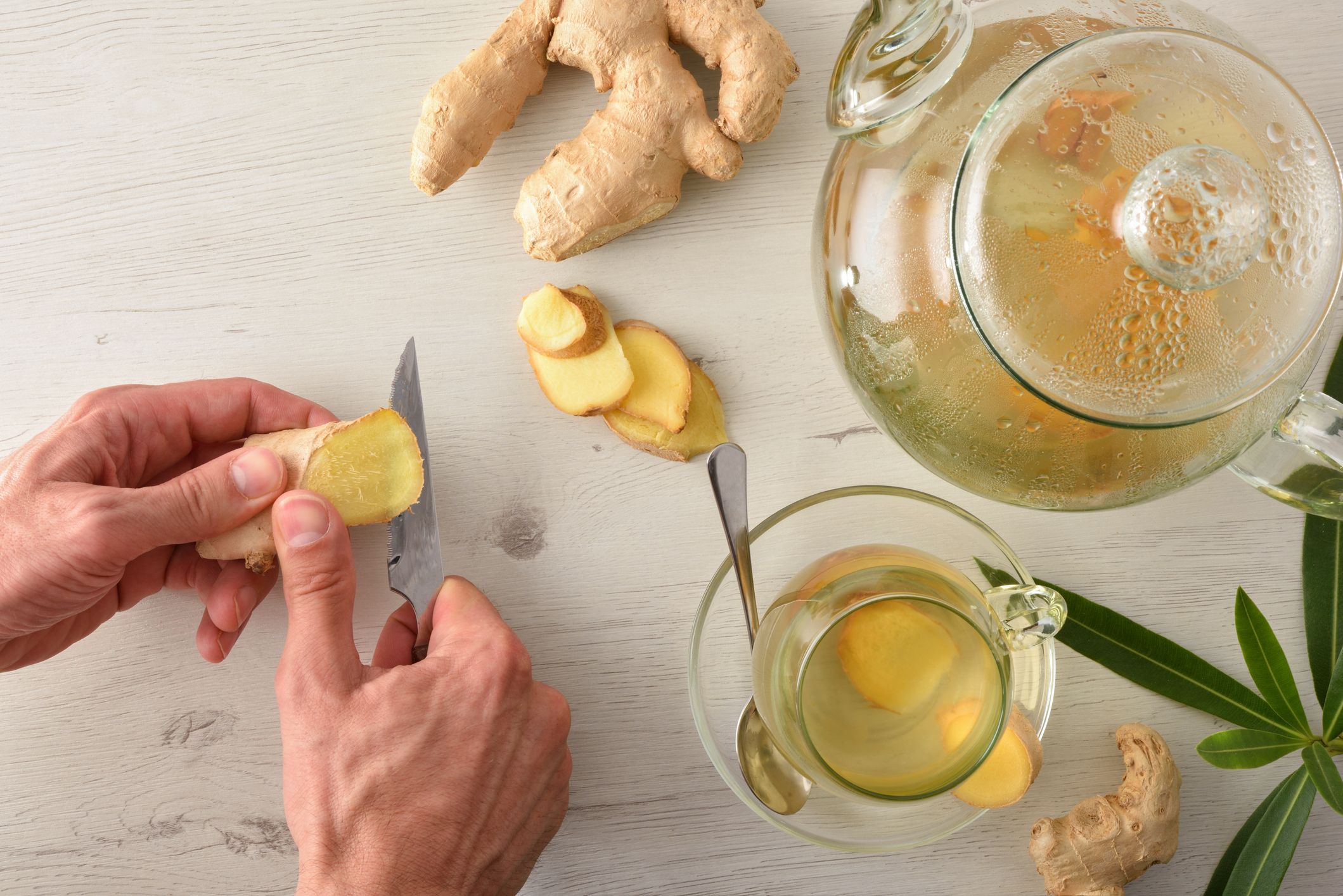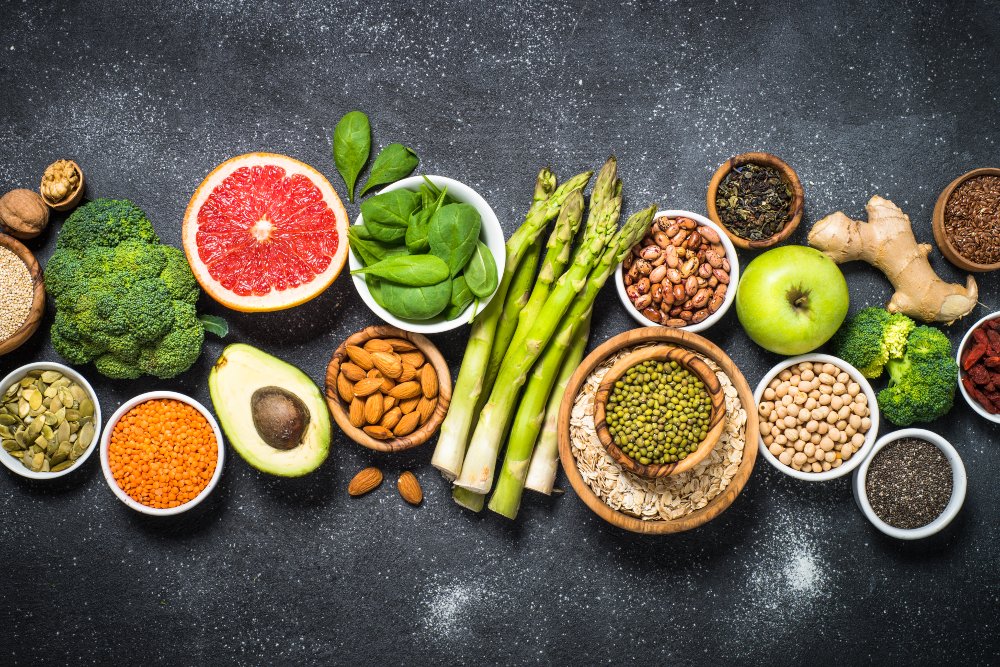Like turmeric and apple cider vinegar, ginger is getting lots of attention as a healthy ingredient. It may ease stomach pain and nausea, help with weight loss, reduce your risk of heart disease and cancer.
You can add ginger to your diet in many ways-fresh, dried, pickled, preserved, crystallized or powdered and in teas. It also has a strong, zesty flavor.
1. Reduces inflammation
When it comes to reducing inflammation, ginger is one of the most effective natural remedies. It contains a wide variety of nutrients, including potassium, magnesium, calcium, phosphorus and zinc. This helps to improve blood circulation and prevents cardiovascular disease.
Ginger also has stabilizing properties, which help fight chronic diseases like diabetes. In fact, a recent study found that ginger can reduce blood pressure just as effectively as some prescription medications.
It also stimulates testosterone production, which is a crucial hormone for men’s sexual health. However, further research is needed to determine the exact amount of ginger required for this effect. Also, it’s important to avoid ginger if you have a bleeding disorder or are scheduled for surgery. A registered dietitian can provide information and guidance about consuming ginger. They can also recommend the best type of ginger supplement for your needs.
2. Lowers blood pressure
You’ve probably enjoyed ginger’s punchy flavor in smoothies, tea and curries. Maybe you’ve even tried a low-sugar ginger candy or a ginger juice wellness shot sold at health food stores.
The natural compound 6-shogaol in ginger helps ease nausea, morning sickness and menstrual cramps. Ginger also soothes gastrointestinal discomfort and relieves heartburn. A 2020 study found that drinking ginger water or eating fresh ginger increases gastric emptying, reducing the pressure on the lower esophageal sphincter to relieve heartburn.
Another benefit of ginger is that it stabilizes blood glucose levels. According to a review of four high-quality clinical trials, people with type 2 diabetes who consumed ginger powder daily saw their fasting blood sugar and HbA1C (a long-term blood sugar control measurement) decrease significantly.
3. Lowers cholesterol
You might think of ginger as a spicy addition to your favorite Asian dishes, but it’s also found in smoothies and tea, soups, curries, stir-fries, salad dressings, desserts, cookies, candies and even those ubiquitous ginger-turmeric-lemon juice wellness shots. It contains a good amount of antioxidants and may help reduce oxidative stress, which can lead to chronic diseases such as cancer, heart disease, rheumatoid arthritis, aging and more.
A cup of sliced ginger has about 20 calories and offers some vitamin C, potassium, zinc, copper and iron. You can also find ginger dietary supplements, powders, extracts and oils in pill or liquid form. It’s not known if ginger supplements are as effective as the fresh root or the tea. Talk to your doctor before incorporating them into your diet.
Also Read: Top 10 Foods For Healthy Hair
4. Stimulates testosterone production
Men suffering from low testosterone are prone to a variety of health issues including erectile dysfunction. Testosterone is a vital hormone that boosts the strength of muscle and bone in men. Low testosterone levels can also affect confidence, mood and day to day balance.
The good news is that ginger is a powerful natural testosterone booster. The root and extract have been shown to stimulate testosterone production in humans by increasing blood flow, lowering oxidative stress, and raising levels of the luteinizing hormone.
In a study, the researchers found that a supplement containing ginger root and Kaempferia parviflora improved sperm cell number and testosterone in infertile men. They reported that this was likely due to the fact that it helped increase blood flow to the penis and sexual organs. This is one of the most potent testosterone boosting foods.
5. Aids in weight loss
In addition to being a great natural libido enhancer, ginger may also aid in weight loss. Researchers believe that the tiny microbes in your gut—called your gut microbiota—significantly influence your body weight. The good news is that ginger seems to positively affect the gut microbes, especially in people who are overweight. In a 2019 study, people who supplemented with 6-paradol (an active compound in ginger) lost more weight and more belly fat than those who didn’t take the supplement.
Another way that ginger might aid in weight loss is by improving circulation. One study found that drinking a ginger beverage after a meal burned more calories than consuming water alone. This is likely because ginger improved the movement of your bowels, which helps speed up your metabolism. (But speak with your doctor before taking ginger supplements if you have certain health conditions like blood disorders.)
6. Aids in digestion
When a person digests foods quickly, the body is able to absorb more nutrients, which gives the body more energy. Ginger helps stimulate digestion, helping to relieve symptoms of dyspepsia and speeding gastric emptying.
While many people rely on this powerful root as a treatment for upset stomachs, it has also been shown to help improve circulation. In one study, researchers found that a ginger-like root extract called Kaempferia parviflora helped to improve men?s erectile function by improving penile blood flow.
This is likely due to the fact that this plant contains a variety of aphrodisiac compounds such as gingerols, shogaol and parasols. When used as a dietary supplement, this ingredient may have a beneficial effect on prostate health and sexual performance in men. (10)
7. Stimulates the immune system
Ginger stimulates the immune system to promote stronger resistance against diseases and infections. It contains natural vitamins and minerals like potassium, manganese, phosphorus, calcium, magnesium, zinc and vitamin C. It also provides antioxidants that protect against harmful free radicals. It is also a carminative that relieves digestive disorders. Its anti-inflammatory properties ease muscle pain and help treat arthritis and osteoarthritis. It has also been shown to reduce morning sickness in pregnant women.
Ginger improves circulation, which helps boost libido. One research study showed that a ginger extract, Kaempferia parviflora, increases sexual desire in men and also enhances sperm motility. This is because it increases nitric oxide, which relaxes blood vessels and enables proper blood flow. This can help address erectile dysfunction, according to the study. You can take a supplement that contains this ingredient or include it in your diet by adding ginger to smoothies, juices and other healthy recipes.
8. Helps in reducing the risk of cancer
Ginger has potent antioxidant properties that protect the body from free radicals, which can lead to rheumatoid arthritis, chronic inflammation and even cancer. Ginger also reduces triglyceride levels and lowers cholesterol, which may help in the prevention of heart disease.
Research shows that a ginger-like root extract called Kaempferia parviflora can support male sexual function. It helps improve penile blood flow, response time to sexual stimuli and intercourse satisfaction, with results seen in as little as 30 days.
Whether consumed fresh, dried or in the form of a tea, ginger has powerful health benefits that can be easily incorporated into your daily diet. However, as with any herb, you should always consult your doctor before introducing it into your regimen. Ginger can sometimes interact with certain medications and supplements. It is recommended to consult a licensed practitioner with a background in botanical medicine before starting any new herbal remedies.
9. Aids in reducing the risk of diabetes
Gingerol is a compound found in ginger that has antioxidant and anti-inflammatory properties. It may help ease indigestion, soothe the gastrointestinal tract and alleviate nausea.
One study found that pregnant women who took ginger experienced less morning sickness and vomiting than those taking a placebo. The research also found that gingerol helped silence nerves that trigger nausea and vomiting.
Another recent study found that ginger lowered fasting blood glucose and hemoglobin A1c in people with Type 2 diabetes. The researchers concluded that ginger was safe to consume, but it’s important to talk to your doctor before making any major changes in diet or supplements if you have diabetes. They also recommend consulting with a specialist if you are on diabetes medication or have a condition like cardiovascular disease. Adding ginger to your diet can be as simple as drinking a cup of tea daily.
10. Helps in reducing the risk of heart disease
Ginger is a natural heart-healthy spice, lowering cholesterol and blood pressure, and stimulating circulation. It also prevents the clogging of arteries by inhibiting abnormal clotting.
In a recent study, researchers found that ginger may help lower the risk of a heart attack by reducing markers of oxidative stress and increasing circulating levels of antioxidants. This is because ginger root and juice contain an enzyme that helps neutralize free radicals.
A cup of hot ginger root tea or ginger water is the perfect way to soothe a queasy stomach, and is easy to make by peeling a knob of fresh ginger, slicing thin and boiling in water for 10-30 minutes. Or, try adding it to soups, stir-fries, chicken dishes, salad dressings and desserts. A nutrient rich superfood, ginger is available in many forms at grocery stores and health food shops, including whole, dried, ground or as a supplement.






